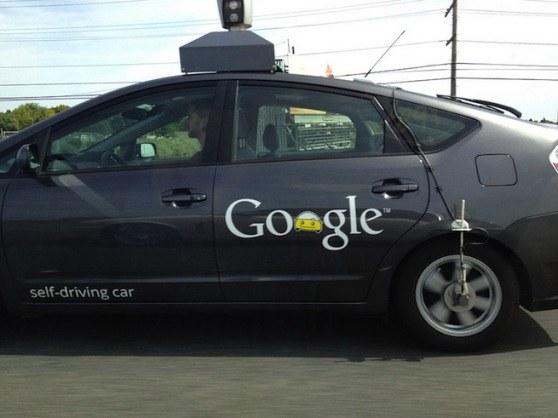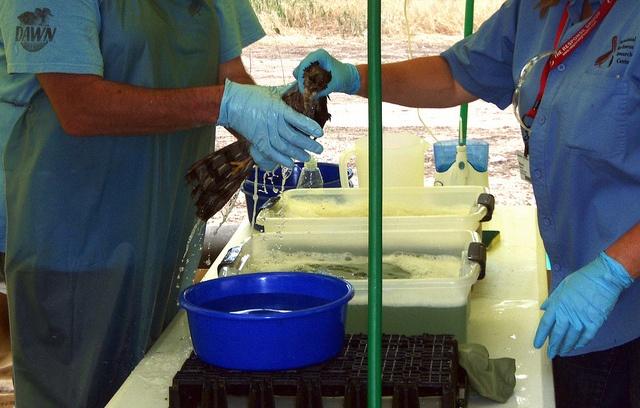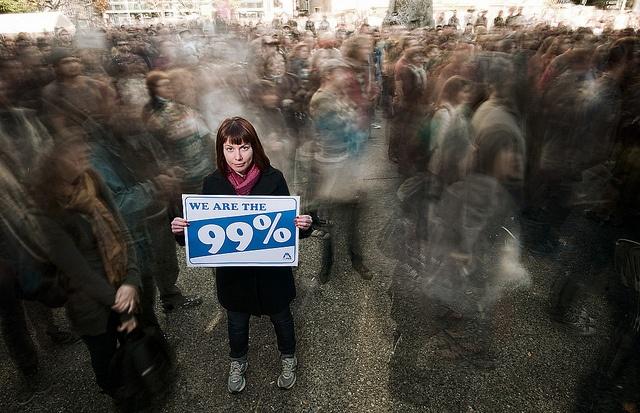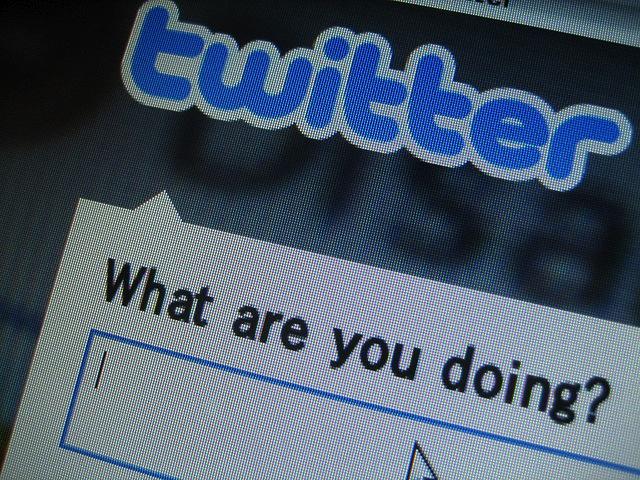Best Business Innovations of 2014


By Debbie Fletcher
2014 saw a range of new innovations within the business world. Numerous companies won awards for their innovative ideas and services, and below you’ll discover some of the best.
1. Google leads the way
Internet giant Google led the way for innovations, developing numerous projects that could change the world (or at least the way you live and do business). Shopping Express is one of the company’s innovations, experimenting with the idea of same-day delivery. Very few companies offer this service yet it is something that many of us would love.
Another innovation from Google that did quite well in 2014 was its range of autonomous vehicles, which reached a milestone of 500,000 driver-free miles last year.
2. Life-saving truck technology
One of the biggest challenges that a fleet manager faces is ensuring the safety of his or her drivers as well as members of the public. In 2014, Continental and Brigade Electronics developed a 360-degree camera system that was trialled on numerous trucks. The trial proved to be a success, and it has greatly enhanced truck-driver safety. Brigade Electronics is already renowned for its selection of vehicle safety products, and this new system is just one in a long line of useful safety equipment for the commercial vehicle industry.
3. 3-D printing
Another exciting innovation that really progressed in 2014 was 3-D printing. Since they were first developed, 3-D printers have come a long way, and there are now concrete printers that can build a home in less than a day, PSFK reported last year. This is extremely impressive and has caused a lot of excitement within the industry. It is rumored that 3-D printers are set to be introduced onto the mainstream market by the end of 2015.
4. Cloud storage made easy
Dropbox gained significant popularity in 2014, largely thanks to a few new features. It managed to double its amount of users to 200 million.
Two of its newest features include Chooser and Saver, which have basically made it easier for outside apps, such as Yahoo Mail, to integrate with Dropbox. The company has also developed a brand new data store, which allows users to sync information to their Dropbox folders via multiple devices.
Specifically for the business world, it added various new project-management features.
5. Environmentally-friendly apps
Nike may be better known for its high-quality sportswear, but in 2014 it created an innovative new product. As reported on Fast Company, the ‘Making’ app helps businesses see the impact various materials have on the environment, allowing them to choose the greenest materials and get closer to their sustainability targets.--
These are just some of the ways business innovators drove change in 2014. If you are looking at ways to improve your business, then it is worth taking a look at them. Or better still, why not try to come up with your own disruptive innovations in 2015? You might just make it onto lists like these in 2015, which would greatly improve your company's brand awareness.
Image credit: Flickr/cblue98
Debbie Fletcher is an enthusiastic, experienced writer who has written for a range of difference magazines and news publications. Follow her here: @Debbie_Fletch18
Joined-up action urged over healthy food promotion


Government and retailers must do more to help consumers choose healthy food from sustainable sources, and waste less say MPs.
In a new report, Food security: demand, consumption and waste, published by the Environment, Food and Rural Affairs Committee, MPs maintain that the food industry and retailers should help consumers to buy food from sustainable sources through providing clearer and more informative information.
With the UK facing a health crisis linked to poor nutrition MPs recommend that retailers and the food industry also provide better consumer information to help people choose healthier diets. Children and adults are eating 50% more saturated fat and children eat 50% more sugar than recommended levels.
Committee Chair, Anne McIntosh MP said: “Despite efforts to promote healthy eating, the UK is still experiencing high levels of health problems linked to poor diet, in particular over consumption. We need joined-up action across government and by local government and retailers to promote healthy food choices, which will deliver national economic and social benefits as well as improving individuals’ health.”
The report calls on the Department for Environment, Food and Rural Affairs (Defra) to lead a joined-up national approach that saves and redistributes surplus food from all parts of the supply chain. A Food Security Co-ordinator role should be created, it believes, one of whose key roles would be to bring together key agencies to develop effective systems to distribute far greater volumes of food that would otherwise go to waste.
The report also recommends that Defra commission further research into the scale of ‘food insecurity’ in Britain to plug a data gap and calls on local councils, working closely with retailers, to use the planning system to promote healthy communities through the location of food stores that enable all to buy healthy food locally at affordable prices.
Pic credit: © Budda | Dreamstime.com - Healthy Eating Photo
American pharma companies lead Global Sustainability Index


Biogen beat fellow American pharmaceutical company Allergan to top spot in this year's Global 100 Most Sustainable Corporations in the World Index.
German sportswear company Adidas finished third, followed by Singaporean real estate corporation Keppel Land and Finnish retailing conglomerate Kesko in fifth.
The Global 100 Index is a global ranking by Canada-based media and investment advisory company, Corporate Knights, of the top sustainability performers and has come to be recognised as the gold standard in corporate sustainability analysis.
The index is determined from public data using twelve quantitative sustainability indicators which include leadership diversity, employee compensation, tax paid, innovation capacity, and energy and water use, among others.
“The Global 100 represent the corporate trailblazers who are forging new ways to make more with less, while raising the bar on good governance and social responsibility,” said Toby Heaps, ceo of Corporate Knights.
One of this year’s most encouraging findings, according to Corporate Knights, is the rapid uptake among firms to pay their executives to deliver on sustainability targets. In 2015, 85% of the Global 100 firms provided a monetary bonus to executives who achieved sustainability targets. For instance, Philips Electronics and Schneider Electric link their executives’ bonuses to achieving carbon emissions reductions.
While American firms earned the most positions on this year’s Global 100 Index, Corporate Knights note that France made substantial strides claiming 12 companies (up from eight in 2014), in part due to more substantive corporate reporting requirements that arise out of France’s Grenelle II Act. It is also notable that the small island state of Singapore, known for its high natural resource productivity, placed four companies on this year’s list.
For full rankings click here.
Masdar Launching Desalination Project Powered by Renewables


Desalination is one reason why the Gulf region has enjoyed spectacular growth over the past two decades. Harvesting fresh water out of the sea is also one long-term economic and environmental problem that countries such as the United Arab Emirates will have to confront.
Effluent resulting from removing salts and minerals from seawater is often discharged into the Gulf, creating one environmental problem. And while most desalination plants in the Middle East are actually cogeneration plants that generate electricity from natural gas, heightened demand for power in the summer means many such plants generate more potable water than can be consumed. In turn, the unneeded water is released into the Gulf, creating even more ecological burdens. And at a pragmatic level, fossil fuels used to operate power-hungry desalination plants means less of them can be exported or even used for local electricity and power requirements.
Desalination fueled from solar or other renewables offer potential, but as of now the amount of energy required has not made renewable energy a viable alternative. A pilot project launched by Masdar in Abu Dhabi, however, could pave the way to a future where desalination could be possible with less of a carbon footprint.
In 2013, Masdar began exploring options to research renewable-powered desalination. Last year the company selected four companies to build pilot desalination stations in Ghantoot, on the border of the Emirates of Abu Dhabi and Dubai. Abengoa, Degrémont, Veolia and Trevi Systems are in the process of building their version of a next-generation seawater desalination plant. During a talk I had here in Abu Dhabi with Mohammad Abdelqader El Ramahi, an associate director within Masdar’s engineering and operations group, he explained the process the project will undertake over the next few years.
Currently each of the four companies is shipping its equipment to the UAE, and over the next several weeks their construction will be underway. The desalination plants are all on track to be completed this summer. Once they are online, Masdar’s engineers will assess the operational efficiency and cost-effectiveness of the plants and will be able to make their final recommendations of which technologies were most effective by August 2016.
At first conventional power will be used to ensure each of the desalination plants will work as their designers intended; they will then transition to the consumption of solar power later on during the project. Masdar has set a goal of a maximum of 3.6 kilowatt-hours per cubic meter of produced water, with the total output a modest 1,500 cubic meters a day — enough to meet the water consumption needs of 500 local homes.
Masdar has stated it has a goal to have a large-scale facility operational by 2020 somewhere in the UAE or greater Gulf region. But it is not just efficiency and technologies that will be evaluated. As Mr. Ramahi told me, “This is not just a one-off project; we will need buy from utilities and other stakeholders, too.”
Considering the fact the Gulf generates 40 percent of the world’s desalinated water, it is critical this billion-dollar industry adopts new technologies to lessen its impact on the world’s environment.
Image credit: Leon Kaye
Based in California, Leon Kaye has also been featured in The Guardian, Clean Technica, Sustainable Brands, Earth911, Inhabitat, Architect Magazine and Wired.com. He shares his thoughts on his own site, GreenGoPost.com. Follow him on Twitter and Instagram.
Disclosure: Masdar covered Leon Kaye’s travel costs to Abu Dhabi Sustainability Week.
Yellowstone River Oil Spill Prompts State of Emergency


Residents in the town of Glendive, Montana, have been told not to drink their water after an oil pipeline broke on Saturday, dumping an estimated 50,000 gallons of Bakken light crude into the Yellowstone River.
The breach was discovered approximately 10 miles upstream from the town of 6,000, which serves as the agricultural hub for eastern Montana.
A spokesperson for Montana Gov. Steve Bullock said the pipeline was shut down quickly.
"We think it was caught pretty quick," said Dave Parker. "The governor is committed to making sure the river is cleaned up."
By Sunday, however, residents in town were reporting an odd odor. Initial tests conducted on the town's water supply indicated elevated levels of hydrocarbons, prompting officials to order a warning against drinking the water. The governor has since declared a state of emergency, but he assured residents that the spill would be cleaned up by Bridger Pipeline, LLC, the Casper, Wyoming-based company that owns the pipeline. Bridger Pipeline is owned by True Companies, which owns a variety of companies, including True Ranches, Butte Pipeline Co., Belle Fourche Pipeline Co. and Black Hills Trucking.
The line, referred to as the Poplar pipeline, runs from the Canada-U.S. border to Baker, Montana, about 72 miles southeast of Glendive. There it hooks up with the Butte pipeline, which heads toward Wyoming. According to Bridger spokesperson Bill Salvin, the line was last inspected in 2012; it lies at least 8 feet below the Yellowstone River, which it crosses near Glendive.
Cleanup is being hampered by ice, which formed over the river and has made it difficult for crews to spot the oil. It has also made it difficult to retrieve the crude, which is normally contained using a boom when it has entered fresh water. Crews are looking to crack the ice and hopefully vacuum out some of the oil -- a difficult job in freezing winter weather.
An oil sheen was spotted about 60 miles downriver, causing officials to raise concerns about the distance that the oil spill may have already traveled. The towns of Sydney, Montana, and Williston, North Dakota, are believed to be in its path, and they have been notified by officials as a precaution. U.S. Fish and Wildlife and the U.S. Coast Guard are also responding.
This isn't the first time that an oil spill has contaminated the Yellowstone River in eastern Montana. In 2011, a pipeline managed by ExxonMobil broke underneath the Yellowstone outside of Laurel, Montana, about 240 miles southwest of Glendive. Two years later, the federal and state governments were still attempting to recover damages from the spill.
More tests will be conducted in coming days to determine the extent of the pollution from the Poplar line break. Meanwhile, the pipeline remains closed indefinitely until assessments and cleanup are complete.
Image of the Yellowstone River near Glendive: Tim Evanson
Image of hawk being cleaned following ExxonMobil 2011 oil spill into the Yellowstone River: USFWS Mountain-Prairie
Abu Dhabi Project Could Transform Aquaculture and Aviation Biofuels


The Gulf region is certainly rife with ambition: In addition to the audacious architecture emerging in its cities, Doha, Dubai and Abu Dhabi are competing to build the world’s largest airports — which means far more demand for aviation fuel. Meanwhile the vast majority of food consumed here is imported, meaning more investments to ensure food security that critics say are not much more than a land grab.
The fact this region has one of the world’s hottest and harshest climates has not stopped its rapid growth, in turn bringing up countless questions about the Middle East’s long-term sustainability. Add the questions of water with its demands for more desalination while aquifers have become depleted, and the future with more people and demand for resources does not look too promising. With 97 percent of the world’s water in oceans and 20 percent of its land desert, other countries will have to face this same dilemma.
But what if it were possible to grow food sustainably in the desert while creating aviation biofuels? A pilot project to launch later this year in Masdar City was announced yesterday at a press conference during Abu Dhabi Sustainability Week.
The Sustainable Bioenergy Research Consortium (SBRC), an initiative of the Masdar Institute of Science and Technology, has announced what it says will be the world’s first bioenergy pilot project to use desert land, irrigated by seawater, to produce both food and energy.
According to its current plan, the project will be constructed later this year in two hectares (5 acres) of undeveloped land in Masdar City. First, seawater will be pumped into ponds that will grow shrimp and fish — addressing a reality that aquaculture has a future meeting the world’s growing demand for protein while acknowledging its waste has become a worldwide environmental headache. Next, waste from raising that fish and shrimp will then flow into fields of halophyte plants and be used as fertilizer. The project’s partners, which include Boeing, have focused on halophytes because they are native to the region, have demonstrated potential as a renewable source for aviation biofuels and can thrive while growing water of high salinity (necessary as the seawater here is saltier than in other regions across the world).
Third, researchers will then harvest the biomass and oils from the halophytes and process it into biofuels. It’s important to remember that this is a small-scale project: Each hectare can produce about two tons of seeds, which will have about a 30 percent oil content. So, we are not close to fueling transoceanic flights, even with a 5 percent biofuel-to-conventional fuel blend. But in a region that has to prepare for a world with diminishing petroleum supplies while coping with food security, this project is a start.
Finally, effluent from the previous steps will be discharged into cultivated mangroves, which have long served has a natural barrier in the Abu Dhabi area between land and sea. Mangroves have long served as a carbon sink as they filter out nutrients from polluting the Gulf. Unfortunately, development has destroyed many of these mangroves, so this project could also serve as a wake-up call to restore one of the natural wonders of this region.
Biofuels have been proven to reduce carbon emissions by 50 to 80 percent compared to conventionally-produced sources of aviation fuels, but questions of scale and the food-versus-fuel debate have been a barrier to wider use. If this project in Masdar City can work outside of the laboratory phase, expand and become commercially viable, the SBRC project could be a huge step forward for sustainable development, food security and renewable energy generation in the Gulf region.
Image credits: Leon Kaye
Based in California, Leon Kaye has also been featured in The Guardian, Clean Technica, Sustainable Brands, Earth911, Inhabitat, Architect Magazine and Wired.com. He shares his thoughts on his own site, GreenGoPost.com. Follow him on Twitter and Instagram.
Disclosure: Masdar covered Leon Kaye’s travel costs to Abu Dhabi Sustainability Week.
Battle Climate Change With Sustain:Green's New MasterCard


Yesterday, Sustain:Green launched a MasterCard that rewards its users with carbon offsets, giving individuals a way to reduce their carbon footprint and fund the Mata No Peito rainforest preservation project in Brazil.
Numerous studies point to manmade emissions as being one of the biggest factors in global climate change, and on the heels of the hottest year on record, Sustain:Green's CEO, Arthur Newman, believes that a biodegradable credit card with carbon offset rewards is a welcome solution for customers looking for another way to live more sustainably.
After recycling, reusable grocery bags, and turning down the thermostat, the options most people have to reduce their carbon footprint usually fall into three categories, too difficult, too expensive, or not possible," Newman said in a press release. "Just by using our card for purchases they would make anyway, consumers can shrink their carbon footprint for free, every day, while also helping to preserve rainforests critical to combatting climate change. We hope they will use the card in conjunction with other carbon reduction lifestyle changes, such as fuel efficient transportation choices.”
For every dollar they spend, Sustain:Green reduces card users' carbon footprints by two pounds (fine print excludes cash advances and returned merchandise), and by an initial 5,000 pounds upon first use (within 90 days). There is a personal online dashboard where users can track their carbon offset credits and calculate their carbon footprint. The rewards are automatically recorded on the American Carbon Registry and 100 percent of the money spent buying carbon offsets to reduce users' carbon footprints is allocated to the Mata No Peito project to preserve, protect and reforest Brazilian rainforests.
In this economic climate, will users opt to benefit the planet over receiving cash rewards or accruing travel points? Outside of the green community, will users sign up? And, millennials, who are generally thought to gravitate toward causes and sustainable lifestyles, tend to shy away from credit cards, with Forbes reporting that 63 percent do not have them.
In an email interview with 3p, Newman was optimistic.
I would not want to minimize the size of the green community. If last year’s Climate Marches demonstrated anything, it is that there is a substantial community of dedicated individuals committed to taking action. Also, market research shows that the vast majority of consumers believe climate change is a serious threat, are likely to switch to brands that support a cause, and consider sustainability in selecting a product/brand. While we do expect our product to have particularly strong appeal to Millennials, the interest in green brands extends across age groups. That being said, we also have a prepaid card coming out in a few months that we feel will be particularly appealing to Millennials.
Those cash rewards and travel points? They shouldn't be too hard to give up, since Newman says they take so long to accumulate and many users never cash them in. When using this card, he says, users can see their rewards directed toward rainforest preservation every day.
There have been green credit cards offered in the past, but Newman believes this card has a unique set of benefits.
The Sustain:Green MasterCard combines four great features that have never been offered together: (1) personal carbon footprint reduction, (2) direct financing of rainforest preservation/reforestation programs, (3) a biodegradable card addressing the problems of adding 1 – 1.5 billion cards to landfills each year, and (4) a close relationship with a major non-profit carbon registry, the American Carbon Registry.
It could be a double-edged sword to promote credit card use - which when used responsibly can help your credit score, and used irresponsibly can impact your financial stability - as a tool against climate change, where the more you use it, the more you offset your carbon footprint. One perk would be if there could be additional carbon offset rewards when users purchased items that promoted sustainable living like public transportation passes and bicycles, and paid the balance in full at the end of the month.
In a year, we would like to see the numbers: how many people have signed up, how many pounds of carbon were offset by their use, the progress of the rainforest project and the number of plastic cards this biodegradable card has kept out of landfills. If this card has a significant impact on carbon emission reduction, it could pave the way for more sustainable credit card rewards and more user adoption.
Image courtesy of Sustain:Green.
Income Disparity and Sustained Economic Growth


Income disparity is again a front-page political issue. Credit Suisse projects that in two years the global 1 percent “... Will have more wealth than the remaining 99 percent of the people.” In the U.S., the top 1 percent earns a mean household annual income of $1,318,200. This is approximately 70 times the annual income of the average American worker.
'The 1 percent' now own approximately 36 percent of America’s wealth. Most telling, over the last decade the wealth of the top 1 percent earners has grown, while the bottom 80 percent’s wealth fell from approximately 20 percent of the U.S. economy to around 10 percent.
Wealth concentration restricts sustained economic growth
To appreciate how wealth concentration can blunt economic growth, think Czarist (or modern-day) Russia: A lot of poor people and a few wealthy families does not sustain economic growth. Recovery from the Great Depression provides similar insights. The path to economic recovery was not through enriching the rich. It was through enriching the middle class so they had the capital to start businesses and grow families.
Now consider our current economy: The inability of our economy to achieve sustained economic growth is tied to our middle class being mired in 15 years of no real income growth. Our economically-stagnant middle class is restricted in their ability to financially bootstrap and sustain businesses that have always been America’s lifeblood for job and economic growth.
The difference between wealth creation and economic capital growth
Nobel laureate Joseph Stiglitz (born and raised in Gary, Indiana) has focused his economic research on the question of how income inequity impacts an economy. His pioneering work identified a distinction between growing wealth and growing economic capital.
Today’s wealthy are increasing their wealth through public policy that enables them to borrow money to buy more assets and then pay low tax rates on capital gains earned from selling these assets. This is creating price inflation in assets symbolized by a $100 million New York City condo with Central Park views and the sale of a 1962 Ferrari 250 GTO for almost $35 million. The wealthy are investing in investments. They are not investing in job creation.
We also see this distinction between wealth creation and economic capital creation in corporate America. American corporations are flush with cash even with stagnant revenues. This is achieved through public policy that has enabled concentration of market power among a few competitors within a business segment. Airlines are an example: Fares and profits are up because of public policy that enabled consolidation of airline ownership that shifted pricing power to a few remaining airlines and away from the consumer. Think in terms of your cable, cell phone and electricity bills: You have limited or no choice, resulting in high bills. Corporate America, enabled through public policy that is bestowing upon them increased market powers, is growing profits by pushing down employment, wages and competition. The ramifications include a stock market setting record highs while the middle class consumer remains mired in zero real income growth.
Our country's path to sustained economic growth has historically been through the middle class investing in their small businesses and their families. The middle class uses their capital to start and run small businesses that generate job growth. They also generate jobs by investing in their families through home buying and from paying local taxes for services like schools and roads.
Stiglitz’s distinction between public policy that grows wealth versus public policy focused on growing economic capital defines the economic challenge facing our country. The economic evidence points to our public policy failing to support the middle class’ ability to create economic capital that enables economic and job growth. We are overfunding wealth creation and underfunding the creation of businesses, factories, city infrastructure, schools and similar economic capital assets that support sustained economic growth.
Five steps to sustained economic growth
The following are economics-driven public policy solutions that will restore middle class economic growth enabling economic capital creation. If implemented in tandem, they will economically restore the middle class and enable sustained economic growth.
1. 15 percent top income tax rate. What is good for the goose should be good for the gander. The 1 percent's wealth creation is enabled by a 15 percent maximum tax on dividends and capital gains. This same top tax rate applied to all business and wage income will accelerate economic capital generation and enable sustained economic growth.
2. Eliminate most deductions. A 15 percent top tax rate will underfund the government unless most deductions are eliminated. Our current tax code is a labyrinth of subsidies that distort economic decision-making. Eliminating special interest tax benefits, accelerated depreciation and investment tax credits will return economic decision-making to an investment’s or business’ core financial fundamentals. It will eliminate the economic nonsense where a cruise line company pays a 1 percent effective tax rate, a major corporation with billions in positive cash flow pays no taxes, or the most wealthy individuals transfer funds overseas to avoid taxes.
3. $15 minimum wage. Despite conservative protests against raising the minimum wage, because of a fear that it will reduce business competitiveness, the economics have shown that raising the minimum wage is an accelerated path to sparking sustained economic growth for American businesses. The bottom 20 percent of American workers make less than $12.50 per hour. At $15 per hour, they would still spend all they earn to maintain a standard of living. Their $15 per hour is cash that would immediately convert into new revenues for local businesses and increased local taxes for communities.
4. Eliminate payroll taxes. If we seek job creation and an increase in middle-class income, then why tax payroll? Eliminating these taxes will address business concerns over raising the minimum wage to $15. It also makes starting a factory in America more attractive by reducing labor costs since most factory jobs pay $15 or more per hour.
5. Tax pollution and landfill waste. If we eliminate payroll taxes, we need to raise taxes elsewhere to pay for Social Security and Medicare. Taxing pollution and landfill waste is a great solution. A higher tax on pollution and landfill waste will provide a strong economic signal in support of more efficient business operations and factory production. Increased efficiency is a huge competitive advantage for an economy. In addition, assuming a strong tax on pollution will reduce pollution, the economy will also economically gain from a potential $200+ billion reduction in health care costs that are tied to pollution.
Image credit: Flickr/Gawain Jones Photo
Bill Roth is an economist and the Founder of Earth 2017. He coaches business owners and leaders on proven best practices in pricing, marketing and operations that make money and create a positive difference. His book, The Secret Green Sauce, profiles business case studies of pioneering best practices that are proven to win customers and grow product revenues. Follow him on Twitter: @earth2017
Poll: Energy Efficiency is America’s No. 1 Housing Concern


Safety, affordability and privacy – it’s no surprise that these were some of top housing needs identified in a recent national survey of more than 10,000 households. But the No. 1 unmet housing concern, which the Demand Institute that carried out the poll defined as the “satisfaction gap” between what respondents actually have and what they said was important, was not as easily expected: energy efficiency.
Survey respondents were given a list of 52 housing and community concerns and asked to rank them, on a scale of 1 to 10, by how important they felt the issues were and how much their current home satisfied these needs. The result: 71 percent of U.S. households polled placed a great deal of importance on energy efficiency, but only 35 percent felt their homes were very energy efficient with low monthly utility costs (the respondents making up percentages answered these questions with an 8, 9 or 10 ranking).
Based on these numbers, energy efficiency was the housing concern with the largest gap between the rates of importance and satisfaction – beating out consumer needs and wants for updated kitchens, storage space, safe neighborhoods, affordability, landlord responsiveness and more.
Why the strong desire for energy-wise homes?
“Utilities are a significant and regular part of households’ budgets, and spending on utilities has risen more quickly than overall consumer spending – 56 percent vs. 38 percent growth since 2000,” said Louise Keely, president of the Demand Institute, a nonprofit think tank jointly created and operated by Nielsen and the Conference Board to monitor consumer demand.
This interest in reducing utility bills was likely the motivation for another poll finding: 90 percent of households reported taking measures to reduce energy use in the last five years:
- 67 percent of respondents said they changed their energy-use habits
- 63 percent switched to CFL or LED bulbs
- 38 percent sealed air leaks
- 34 percent replaced old, inefficient appliances
- 28 percent installed a programmable thermostat
It’s telling that despite the high percentage of households making energy-efficiency improvements, 35 percent of poll participants were still not satisfied with their homes’ energy usage; America’s housing stock has a long way to go before it consumes energy very efficiently.
But there has been a significant investment in the energy efficiency field over the past few years, especially from the 2009 federal stimulus. There are now more trained home performance professionals who know how to weatherize homes, as well as more rebates and services for home energy-efficiency improvements than ever. So, why aren’t Americans taking better advantage of these opportunities, if they say they are so interested in energy efficiency?
Perhaps it’s a simple matter of consumers not knowing about services and programs, or – as is most often the case – it’s about money; individuals simply cannot afford to retrofit their homes, even with the rebates and financing options available to them.
The Demand Institute did find a difference in the types of energy-saving actions taken between higher- and lower-income households, Keely said. (The poll attempted to capture a representation of all U.S. households: renters and owners, young and old, high- and low-income).
“Many energy efficiency enhancing options where there is a significant tax impact, like replacing windows or doors, are very expensive and are more likely to be taken by higher income households,” she said. “Lower income households are more likely to report taking inexpensive actions like applying weather stripping or plastic wrapping to windows and doors.”
Advocates for energy efficiency have long known that financing is the key to convincing more Americans to upgrade their homes – by offering attractive rebates and tax credits, or allowing homeowners to pay for retrofits over time through their property taxes or on their utility bills, for example. But now that consumer demand for energy efficiency is at an all-time high, finding ways to make energy improvements more affordable is more important than ever.
Image credit: Flickr/Brett and Sue Coulstock
Passionate about both writing and sustainability, Alexis Petru is freelance journalist and communications consultant based in the San Francisco Bay Area whose work has appeared on Earth911, Huffington Post and Patch.com. Prior to working as a writer, she coordinated environmental programs for Bay Area cities and counties. Connect with Alexis on Twitter at @alexispetru
What’s Next For CR? Thoughts and Predictions for 2015


By Shannon Schuyler, PwC
2014 was a landmark year. Megatrends like demographic shifts, technological breakthroughs and rapid urbanization collided with milestone events -- such as India’s 2 percent give-back mandate and the People’s Climate March -- to re-shape how the world views businesses’ responsibility in the marketplace.
I recently participated in a Twitter chat, on behalf of PwC and the PwC Charitable Foundation, with TriplePundit and Dave Stangis of the Campbell Soup Co. During the chat, we touched on these issues and how they will impact the way we think and act as responsible business organizations in 2015. While there were many important insights and trends, there are seven that I believe will transform the landscape in 2015.
1. Employee engagement gets personal
Employee engagement has long been on top of CEOs' agendas – but as millennials rise to management positions, employee engagement has become even more critical to successful business transformation. Millennials want their workplace to represent their values, which is why firms like PwC see greater retention and higher performance when their people are actively engaged in corporate responsibility (CR). According to a February 2014 PwC study, employees most engaged with their organizations put in 57 percent more effort on the job and are 87 percent less likely to resign than their disengaged counterparts. Millennials are proving that CR is not just something that aligns with company values; it’s a commitment that helps retain talent, spur engagement and promote employee success.This Year: Expect the adoption of more sophisticated employee engagement strategies with a focus on personalization and mobilization. Companies will look to help employees define purpose across a variety of different levels. We are also likely to see deeper engagement strategies via pro bono and skills-based volunteering, as well as companies embracing digital innovation to drive scale.
2. Investment in youth education deepens
The Committee Encouraging Corporate Philanthropy’s 2014 annual giving report noted that 96 percent of companies support educational causes, and 28 percent direct the majority of their funding toward youth education, outpacing every other issue area. As the economy and the talent gap continue to be issues that are front and center for CEOs, companies want to invest in areas that have both short- and long-term benefits. In 2014, the “go local” movement continued to pick up steam across all areas of CR, as people want to feel tangibly connected to their decisions and actions. This trend also contributed to the rise of community investments.
This Year: Expect investment in youth education to continue to comprise a large portion of company giving strategies. Technology, digital tools and game-based learning are the wave of the future. These new teaching tactics can help to transform, revamp and retool the way students and educators approach learning, especially within challenging subjects like math and science, where U.S. youth typically lag behind those from other parts of the world. As budget issues continue to plague school districts in communities across the country, expect to see business play an increased role in investing in quality education programs.
3. Companies look at diversity in different forms
This year, diversity has dominated conversations from Washington to Wall Street. For the first time in history, the number of women in the U.S. Congress is more than 100, representing substantial progress for female leaders. While females comprise just 18 percent of overall boards, nearly a quarter of all new S&P 500 directors in the past two years have been women.
This Year: We’ll see more companies looking to address diversity in a variety of forms. From a talent perspective, CEOs want to hire employees who bring more to the table than ever before. In fact, according to PwC’s 18th Annual Global CEO survey, 85 percent of CEOs said they are actively searching for talent in different geographies, industries or demographic segments, and 80 percent are looking for a broader range of skills than they did in the past. Today’s business environment requires innovative thinking and the ability to examine issues from a range of perspectives. Companies want boards that are better suited to address evolving and increasingly complex business, regulatory and political environments.
4. Sharing economy and digital mapping tools become mainstream
2014 was the year of the so-called “sharing economy” – in which businesses or peers built on the promise of shared resources. Disruptive companies have become mainstream around the globe and continue to grow in popularity and size. These disrupters are radically shifting how consumers live, spend and interact with each other.
This Year: Expect to see an uptick in new organizations, tools and applications – such as innovative digital mapping tools to ease the targeting and sharing of resources – that enhance the value of the sharing economy. The challenge now is how to support the development and maturity of these creative companies and industries to bring them to scale. Those in the digital and social purpose worlds should be able to complement them.
5. Supply chain becomes a competitive advantage
As companies have grown increasingly reliant on complex global supply chains, business disruption, increasing costs and brand management have emerged as important concerns. But companies have started to integrate sustainability strategies to overcome supply chain vulnerabilities and create competitive advantages. More than two-thirds of supply chain executives surveyed in PwC’s 2013 Global Supply Chain Survey say sustainability will play an important role in managing supply chains through 2015 due to the potential to improve resilience, reduce costs and support growth.
This Year: Investors can expect to see increased collaboration at the supply chain level, leading the way for more sustainable sourcing. Industry leaders play an important role in setting the supply chain goals, such as greenhouse gas reduction targets and sustainable sourcing, that consumers and businesses want to see – creating a competitive marketplace advantage. Other supply chain risks – climate change, human rights violations and the use of controversial raw materials – may also come into play, as investors increase pressure to address potential supply chain risks.
6. Climate change becomes more inclusive
From start to finish, 2014 was marked by extreme weather patterns, lengthy droughts and dangerous storm surges that continue to showcase the effect of global climate change. The impact on business and the economy, coupled with increased consumer advocacy, has led to newfound interest in tackling climate change. In September during Climate Week, hundreds of thousands of demonstrators from around the world gathered in Manhattan to demand action ahead of a United Nations Climate Summit. PwC was among the businesses who signed the World Bank’s call to governments and business leaders to support putting a price on carbon to support the transition to a low-carbon economy.
This Year: Expect to see a rise in local government action to address the challenges posed by climate change. On the federal level, the new GOP leadership in Congress has pledged to thoroughly review proposed clean energy regulations, including the adoption and implementation of the EPA Clean Power Plan for power plants. On a global level, expect to see a crescendo of business engagement leading up to the United Nations Framework Convention on Climate Change later this year, which is seen as a critical opportunity to achieve a binding global agreement on climate. Further, U.N. member states are working with the business community to advance a series of sustainable development goals to grow economic, social and environmental advancement.
7. More companies embrace new reporting methods
PwC data shows that nearly two-thirds of investment professionals (63 percent) say that the quality of a company’s reporting could have a direct impact on its cost of capital. A separate study found that the same percentage of institutional investors say they are dissatisfied with the current level of corporate disclosure by U.S. companies on matters relevant to climate change, resource scarcity, corporate responsibility and citizenship. Feedback such as this has led companies to discover that corporate reporting should create a customized experience, which considers the many different ways people, companies and organizations engage with each other.This Year: Financial reporting can be resource intensive for issuing companies and of suboptimal value to investors. Expect to see a newfound openness to revised standards and frameworks for reporting, such as the Sustainability Accounting Standards Board (SASB) and the International Integrated Reporting Council (IIRC) Guiding Principles.
Bottom Line: I’ve been closely following these seven CR trends throughout 2014, and believe these issues are prime for increased movement in 2015. What did I miss? What are your predictions? What’s next? Share your thoughts with me @shannonschuyler #pwcCR2015.
Image credit: Flickr/keiya
Shannon Schuyler is the corporate responsibility leader for PwC and the president of PwC’s Charitable Foundation, Inc.